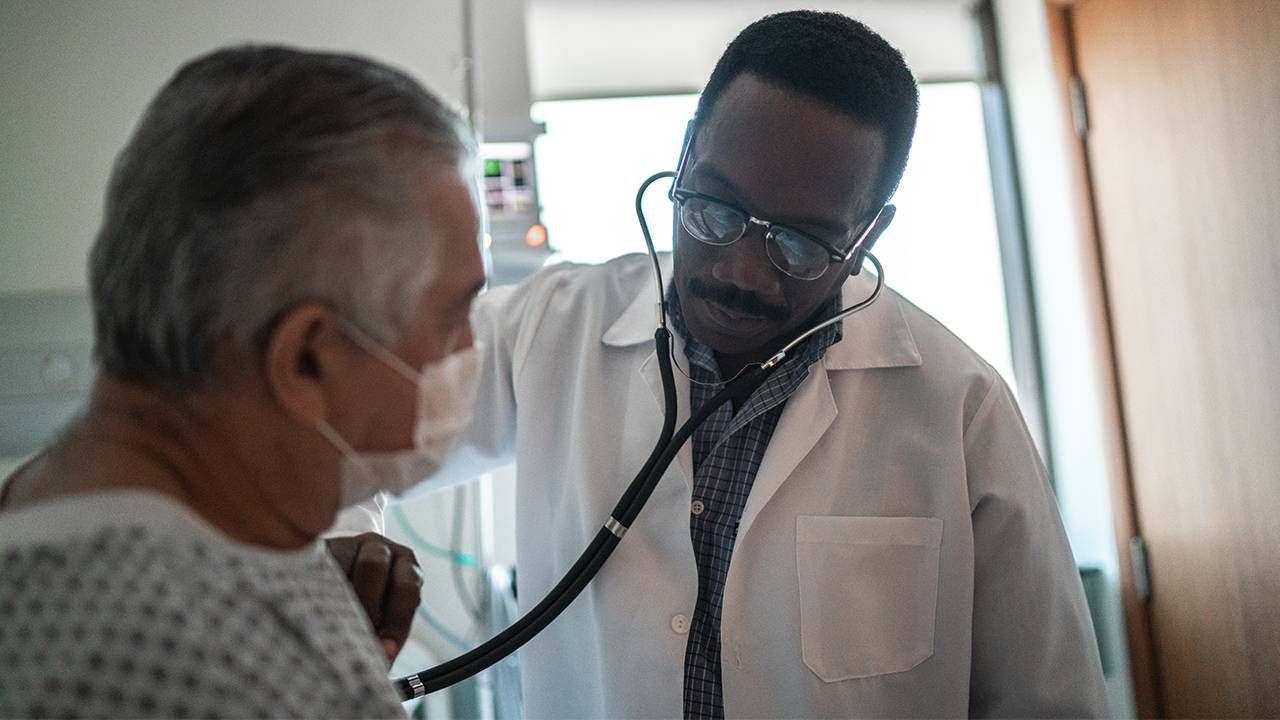

House Call Conversations: Social Work
Landmark social workers use short-term evidence-based case management and psychotherapeutic interventions to improve patient stability.
Social Work for Medical Stability
Landmark social workers help patients when providers have concerns about a psychosocial stressor and its impact on the patient’s medical or mental health. After completing an in-home visit, a Landmark provider may request social work involvement. Landmark social workers can connect patients to needed community services, provide brief counseling related to adjustment to illness or a change in functioning level, and assist in end-of-life planning.
Landmark social workers conduct an in-home, comprehensive psychosocial assessment to identify the primary non-medical needs and stressors impacting the patient’s health. The social worker also discusses the patient’s strengths, values and supports already in place.
A Patient-Centered Approach
The social worker’s assessment results in up to three patient-centered goals that support the patient’s medical stability. Social workers promote patient self-management by assigning reasonable tasks for the patient or family to complete toward goal achievement. There are a variety of psychotherapeutic techniques social workers use to engage the patient and help them make positive change.
Social work intervention typically lasts 6–8 weeks, including care coordination with the Landmark interdisciplinary care team and community resources. Follow-up encounters may be conducted by phone or in the home and may be extended to achieve a patient’s goals.
Landmark proactively identifies and addresses problems and needs that would otherwise go unnoticed and unmanaged, making timely additions and adjustments to treatment plans with primary care providers that better support patients and caregivers.
Team-Based Care
Landmark social workers practice through an evidence-based model called Ambulatory Integration of the Medical and Social (A.I.M.S.). Landmark social workers function as part of the interdisciplinary care team. This team meets regularly to share patient information, and documents patient information in a shared electronic medical management system for optimal care coordination.
Landmark social workers are familiar with local community resources and maintain a network of community partners to coordinate quality care for patients. Landmark social workers strive not to duplicate available services, but to assess patient needs, leverage existing services and supports, stabilize patients through brief counseling and education, and coordinate additional resource needs.
While everyone’s needs and outcomes are different, read an example of a real Landmark patient that demonstrates the impact that a Landmark social worker can have.
A 79-year-old, divorced female, “Josephine,” lives alone. Josephine feels isolated, because she can’t drive and doesn’t want to burden her family to provide transportation.
The Landmark social worker receives an urgent referral as Josephine has a depression screen (PHQ9) score of 25, indicating severe depression. Josephine has a behavioral health history of major depression, generalized anxiety disorder, and insomnia. She also has several chronic medical conditions including coronary artery disease, congestive heart failure, rheumatoid arthritis, type 2 diabetes with complications and hypothyroidism.
After a social work home visit and a psychosocial assessment is completed, the social worker and patient develop the goals listed below.
- Goal 1: Increase socialization
- Goal 2: Increase independence
- Goal 3: Promote a positive self-image
Social Work Interventions:
- Connect the patient to a Friendly Visitor program with the Office on Aging and with church friends.
- Apply for Senior Shared Ride transport and coordinate a “trial run” ride with her daughter-in-law.
- Educate and encourage the patient to practice positive self-talk and affirmations; reinforce use in each telephonic follow-up.
Outcomes:
- Josephine connects to the Friendly Visitor program and reconnects with friends from church.
- Josephine no longer feels dependent on her daughter-in-law. She is confident in navigating the public transit system and can participate in social activities.
- Josephine regularly practices positive self-talk and affirmations and reports that “it really works!”
- Josephine’s most recent depression screen (PHQ9) score is 4.


Article
Why All Health Care Providers Need to Be Age-Friendly
Older adults will outnumber children by 2034 and yet the U.S. health care system is not focused on older patient's very specific needs

Blog post
Creating a Safe Home for Those with Alzheimer’s
Landmark providers specialize in home evaluations and modifications and can help adapt the home setting to meet patients’ needs.
 written by
written by